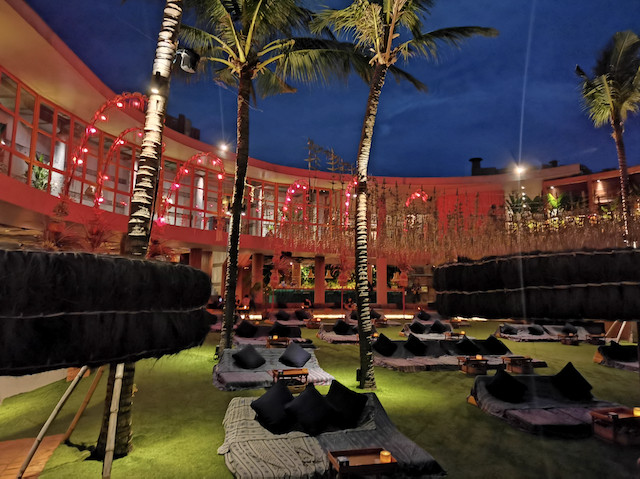Popular Reads
Top Results
Can't find what you're looking for?
View all search resultsPopular Reads
Top Results
Can't find what you're looking for?
View all search resultsLuxury hotels in Jakarta, Bali recovering from pandemic: JLL
According to property consultancy Jones Lang Lasalle, revenue per room at top-rated hotels has been steadily increasing since July, with the exception of a slight decrease when the Omicron variant of COVID-19 hit the country in early 2022.
Change text size
Gift Premium Articles
to Anyone
T
op hotels in Jakarta and Bali are recovering from the impact of the coronavirus pandemic and the travel restrictions imposed in response, an industry study shows.
Property consultancy Jones Lang Lasalle (JLL) reported on Wednesday that the luxury accommodation sector in Jakarta and Bali had entered a cycle of rising “revenue per available room (RevPAR)” in the first quarter of 2022 amid relaxed COVID-19 rules.
According to a virtual press briefing by JLL, RevPAR relative to 2019 increased steadily from July to December 2021, before a slight decrease occurred in early 2022 as infections with the Omicron variant spiked.
Between the two cities, Jakarta performed better with a year-on-year (yoy) RevPAR increase of 147 percent, while Bali followed with a 30 percent rise.
“Short-term recovery will probably see the dominance of domestic corporations and staycation guests continue to push demand,” said JLL marketing manager Monika Korompis in the briefing.
Read also: Indonesia's quarantine vs investments conundrum
As a relaxation of entry rules for foreign tourists was postponed until the middle of the first quarter, domestic travelers had been the backbone of hotel occupancy until most recently, the JLL report shows, prompting hotels to lower their average daily room rate (ADR) to attract guests.
But now that COVID-19 restrictions have been curbed, especially for international travelers, hopes are high that foreigners will become a catalyst for recovery.
“Provided there are no other new variants that would halt the pent-up global demand for travel by then, the positive momentum is believed to continue in the second quarter for hotels in Bali, as we expect more easing for travel in other countries of the region but also globally,” JLL investment vice president Julien Naori said in a written message to The Jakarta Post.
Read also: Bali welcomes back tourists with first international flight
Maulana “Allan” Yusran, secretary-general of the Indonesian Hotel and Restaurant Association (PHRI), concurs.
“Seventy percent of Bali’s real hotel occupants are foreign visitors, so an inflow of 5 to 6 million foreigners would be very significant for Bali,” said Allan in a phone call with the Post.
Regarding the suspension of mandatory quarantine, Naori believes occupancy could decrease in hotels that provide quarantine services. Allan, on the other hand, believes that the benefits will outweigh the costs as more tourists come to Indonesia.
“Hotels that provide quarantine only represent around 10 percent of the industry,” Allan continued.
High hopes for hotel recovery are also reflected in signs that foreign investors are increasingly keen on the sector. JLL also reported on Wednesday that US$300 million in foreign direct investment is forecast to flow to the domestic hotel industry this year.
A survey of the property consultant also shows that 62 percent of foreign investors have shown an interest in buying hotels in Indonesia.
“Indonesia has the fourth-largest population, a large productive population and abundant natural resources. Therefore, Indonesia is an attractive place for investment,” said JLL country head James Allan in a written press statement on the same day.










